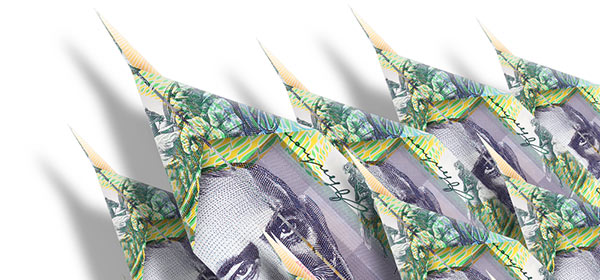Most first-time travellers do the research, book their flights and accommodation, and even half pack their bags weeks in advance, but rarely consider how they’ll handle money when they’re overseas.
To help make the process easier, here are six common mistakes made by rookie travellers, so hopefully, you don’t make them either.
1. Buying your foreign currency at an airport
Airport currency exchange bureaus may not charge fees or commissions, but they will most likely have these fees built into their exchange rate. More often than not, the foreign exchange kiosk at your local shopping centre will have the most competitive exchange rate and the lowest – certainly lower than in the CBD and airport bureaus.
2. Using your bank card instead of a travel cash card
You’ll save yourself a bundle by using an Australia Post Cash Passport instead of your everyday bank card. Do your research and you’ll most likely find that a prepaid travel card won’t charge you for overseas cash withdrawals or exchange fees, whereas most banks charge around two to three per cent on overseas transactions.
3. Exchanging too much foreign currency before you land
Sure, you’re best-served by having local currency in your pocket when you land in another country, but having too much is just asking for trouble. What happens if you lose it, or have it stolen? Pulling out a wad of cash in any currency can attract the wrong sort of attention, so you’re better off just having a couple of hundred dollars’ worth in any currency, and exchanging more later, or using overseas ATMs or branches when you need more cash.
4. Not taking a credit card
Some travellers will play the hard line and only take their debit card or a strict cash budget along with them when they go away. But often, using your credit card for purchases, be they for services or products, gives you the best exchange rate. Credit cards are also handy back-ups should you lose or spend all your travel budget. Here’s a tip, though: always ask for any purchase to be made in local currency. That way you’ll usually end up with the better exchange rate. Oh, and you should choose a credit card that has low foreign transaction fees.
5. Not informing your bank of your travel plans
This one is a doozy, and has caught out many a traveller at the worst possible moment. You should always alert your bank of your travel plans, either by visiting your local branch or by phone. There couldn’t be a worse situation than having your credit or bank card cancelled because of suspected fraudulent activity or because your bank thinks your card has been stolen.
6. Taking a card without chip technology
If you haven’t updated your card in a while, you may not have one with chip technology. You know, the ‘PayPass’ thing? While most places can still swipe your card for purchases, some countries rely solely on chip technology for things such as buying public transport tickets, purchasing fuel at late-night service stations and using special vending machines. Having a chip in your card will just make your trip purchases a little simpler.
Do you have any money tips for travellers? Why not share them with our members?
Related articles:
Travel cash card
Managing money while travelling
Managing your travel money

